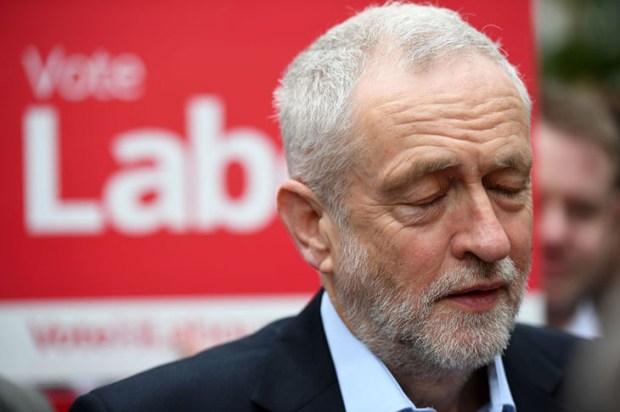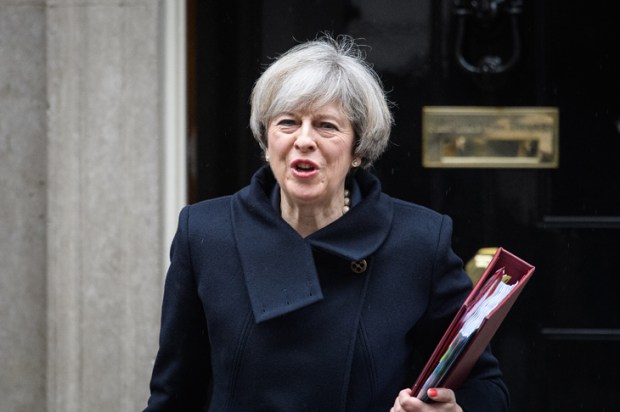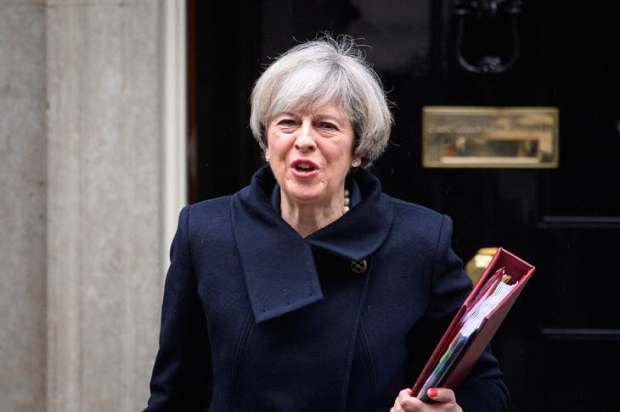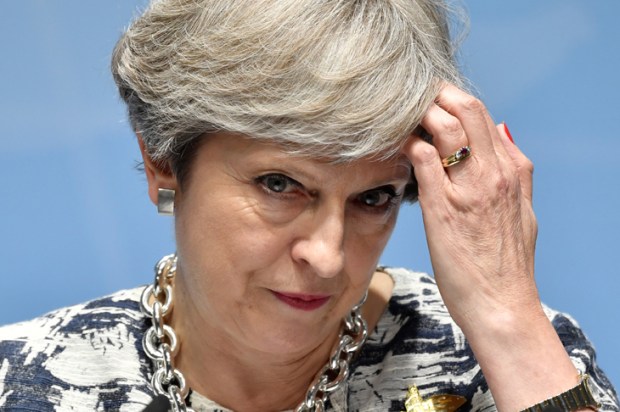For the last five years, I’ve been trying to get people interested in the Fixed Term Parliaments Act. No, don’t sidle away. Honestly, this is The Spectator. Aren’t you meant to be into this sort of thing?
It’s not as though we’re on a date, for God’s sake. It’s not like we’re in a restaurant and the starter has just come, and I’m droning on about the threshold for a vote of no confidence, and you’re draining your third huge glass of red and thinking, ‘This guy looked waaaay more fun on Tinder. Next time I go to the loo I’m climbing out the window.’ That’s not how it is. No it isn’t. Pay attention.
The thing is, we’re living in the past. We were even living in the past in the past, by which I mean a more distant past, in a past that has only just… gone… past. Hell, you’re drifting off, aren’t you? Right. Look. For the past five years, whenever the coalition has looked a bit wobbly, people have said, ‘Oooh, if the government collapses, we’ll have an election!’ and they’ve been wrong. And now, today, as we gaze at the spectre of an utterly hung parliament — a ‘well-hung parliament’, I might call it, if I felt you’d stopped concentrating — people are making the same mistake. They’re thinking that another coalition will form, and that we’ll be back at the polls if it crumbles. Or that a minority government will limp on until such time as it no longer can. And then off to the country they will go.
No. No. Or at least, probably not. That was how it used to work. You’re the PM, you’re struggling in the Commons, you want a less wobbly life, it’s 1974, fine. Only it’s not 1974 any more. Since 2011, there has been the Fixed Term Parliaments Act. Which means you can’t. To do that now, see, you need two-thirds of the Commons to agree with you. And if two-thirds of the Commons did that you wouldn’t need an election in the first place.
In almost every respect, the constitutional reforms that the Lib Dems demanded as their price for joining the 2010 coalition collapsed in farce. Most notably, Britain does not have the alternative vote. Yet the fixed-term thing sneaked through without anybody really thinking about it. And they should have done. It changes everything. Today, if a government collapses in the middle of a term, you don’t necessarily get an election. Instead you might just get another government.
Suppose, this time around, that both of the big two parties get about 295 seats, with the Tories dropping a few (they won 306 last time) and Labour picking up their slack, raiding the Lib Dems, and doing less badly than expected in Scotland. Perfectly feasible. The Cleggites, meanwhile, do better than expected, losing only a third of their seats (mainly to Labour), and drop down to 38. Since a parliamentary majority requires 326 seats, this gives us a situation where they can go into coalition with either.
Perhaps they stick with the Tories, for the sake of continuity or because Cameron got a larger percentage of the actual vote. Six months in, though, they have a fight over cuts. So the Lib Dems walk and, working with Labour, force a vote of no confidence. The government falls. Election? Nope. According to the new law, Parliament has 14 days to see if a new government emerges. And so it does, only this time with Labour. Why wouldn’t it?
‘Nah,’ you might be thinking. ‘They couldn’t form a new government without asking the country. There would be a revolution.’ But imagine what those 14 days would be like. Sterling plunging. Global leaders voicing concern. I can’t pretend to ever fully understand what people mean when they say ‘The markets won’t stand for it!’ but I bet they wouldn’t, all the same. And then up pops somebody willing to lead. ‘In the national interest.’
It needn’t happen exactly like that. It could just as easily be a series of minority governments, say, with each one offered support in a confidence vote by the SNP in exchange for some new concession. It’s not even necessarily a bad idea, because elections would pretty swiftly stop being even remotely exciting if we had them once a year. The point is, this is the law now. This is what we’re voting for. We shape a parliament and we raise our palms, and after that anything could happen. And sometimes it feels as though nobody else realises this at all. I don’t really understand it. Maybe they’ve fallen asleep.
Pirate party
According to David Cameron, launching the Conservative manifesto, Britain is a ‘buccaneering, world-beating, can-do country’. Buccaneering? This is good? The buccaneers were pirates, ravaging the Caribbean. Sure, they sometimes did it on behalf of the English crown, theoretically, but they very much were not of the view that we are All In It Together.
I don’t think Cameron quite meant to call us all pirates. By any definition, though, ‘buccaneering’ has connotations of extreme risk, well beyond mere boldness and deep into recklessness. Looking back, I see he’s used the word a few times in a positive sense, praising the ‘buccaneering spirit’ of British businessmen and expats, and doing something similar in his 2012 conference speech. I wonder what he thinks it means?
Got something to add? Join the discussion and comment below.
Get 10 issues for just $10
Subscribe to The Spectator Australia today for the next 10 magazine issues, plus full online access, for just $10.
Hugo Rifkind is a writer for the Times.
You might disagree with half of it, but you’ll enjoy reading all of it. Try your first month for free, then just $2 a week for the remainder of your first year.
















Comments
Don't miss out
Join the conversation with other Spectator Australia readers. Subscribe to leave a comment.
SUBSCRIBEAlready a subscriber? Log in